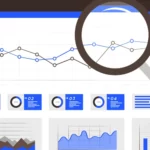If you are self-employed, you are responsible for providing your own health insurance. This can be a daunting task, especially with so many different plans and options available. However, it is important to have health insurance, both for your own peace of mind and for your financial well-being.
In this article, we will discuss everything you need to know about self-employed health insurance:
The different types of health insurance plans available
There are two main types of health insurance plans available to self-employed individuals:
- Individual health insurance plans: Individual health insurance plans are purchased directly from an insurance company. These plans are typically more expensive than group health insurance plans, but they offer more flexibility in terms of coverage and pricing.
- Short-term health insurance plans: Short-term health insurance plans are designed to provide temporary coverage for people who are between jobs or who are waiting for their new employer’s health insurance coverage to kick in. These plans are typically less expensive than individual health insurance plans, but they offer less coverage.
How to choose the right health insurance plan for your needs
When choosing a health insurance plan, there are a number of factors to consider, including:
- Coverage: What services are covered by the plan?
- Cost: How much will the plan cost per month?
- Deductible: How much will you have to pay out-of-pocket before the plan starts paying for your care?
- Copayments and coinsurance: How much will you have to pay for each doctor’s visit, prescription drug, and other medical expenses?
- Network: Does the plan cover your preferred doctors and hospitals?
How to apply for health insurance
You can apply for health insurance through the Health Insurance Marketplace or directly from an insurance company. If you apply through the Marketplace, you may be eligible for subsidies to help make your coverage more affordable.
To apply for health insurance, you will need to provide information about your income, family size, and health history. You will also need to choose a health insurance plan and pay your first premium.
How to pay for health insurance
You can pay for health insurance premiums through a variety of methods, including:
- Direct debit: You can have your premiums automatically deducted from your bank account each month.
- Credit or debit card: You can pay your premiums online or by phone using a credit or debit card.
- Check or money order: You can mail a check or money order to your insurance company.
Best health insurance for self employed
The best health insurance for self-employed individuals will vary depending on your individual needs and budget. However, some of the most popular and highly rated health insurance companies for self-employed individuals include:
- Kaiser Permanente
- Blue Cross Blue Shield
- Aetna
- UnitedHealthcare
- Oscar Health
- Cigna
- Humana
- Molina Healthcare
- Ambetter
- Bright Health
- Clover Health
When choosing a health insurance plan, it is important to consider the following factors:
- Coverage: What services are covered by the plan?
- Cost: How much will the plan cost per month?
- Deductible: How much will you have to pay out-of-pocket before the plan starts paying for your care?
- Copayments and coinsurance: How much will you have to pay for each doctor’s visit, prescription drug, and other medical expenses?
- Network: Does the plan cover your preferred doctors and hospitals?
You should also compare prices from different insurance companies to get the best deal on your coverage. You can use the Health Insurance Marketplace to compare plans and get quotes from multiple insurance companies.
If you are self-employed, you may also be eligible for subsidies to help make your health insurance more affordable. To find out if you are eligible for subsidies, you can apply through the Health Insurance Marketplace.
Tips for getting the most out of your health insurance
Here are some tips for getting the most out of your health insurance:
- Understand your plan: Take the time to read your health insurance plan documents so that you understand what is covered and what is not.
- Shop around: Compare prices from different insurance companies to get the best deal on your coverage.
- Use preventive care: Preventive care, such as annual checkups and screenings, can help you stay healthy and avoid costly medical problems down the road.
- Take advantage of your benefits: Make sure to use all of the benefits that are covered by your health insurance plan. This includes things like prescription drugs, mental health care, and dental and vision care.
Tips for self-employed individuals
- Consider a health savings account (HSA): An HSA is a tax-advantaged savings account that you can use to pay for qualified medical expenses. HSAs are only available to individuals with high-deductible health insurance plans.
- Take advantage of tax breaks: Self-employed individuals can deduct the cost of their health insurance premiums from their federal income tax.
- Shop around for group health insurance: If you have employees, you may be able to purchase group health insurance for them and yourself. Group health insurance is typically less expensive than individual health insurance.
Conclusion
Self-employed health insurance is an important investment in your health and financial well-being. By understanding your options and choosing the right plan for your needs, you can get the most out of your coverage and protect yourself and your family from financial hardship.
Yes, self-employed individuals can deduct the cost of their health insurance premiums from their federal income tax. This includes premiums for self-only coverage, as well as coverage for their spouse and dependents.
Self-employed individuals can purchase either individual or group health insurance. Individual health insurance plans are typically more expensive than group health insurance plans, but they offer more flexibility in terms of coverage and pricing. Group health insurance plans are typically less expensive than individual health insurance plans, but they may have stricter requirements for eligibility.
The self-employed health insurance deduction is equal to the amount of health insurance premiums that you paid during the year, up to 100% of your net self-employment income.
How to qualify for self-employed health insurance deduction?
To qualify for the self-employed health insurance deduction, you must meet the following requirements:
- You must be self-employed and have net self-employment income.
- You must have paid health insurance premiums for yourself, your spouse, and/or your dependents.
- You must not be eligible for employer-sponsored health insurance coverage.
To claim the self-employed health insurance deduction, you will need to file Schedule C with your Form 1040. You can also claim the deduction if you itemize your deductions.












